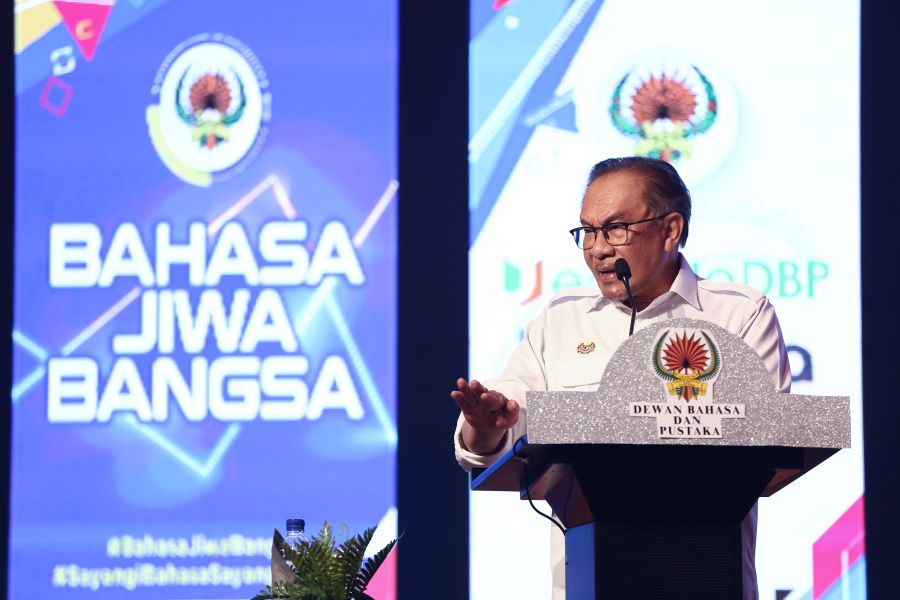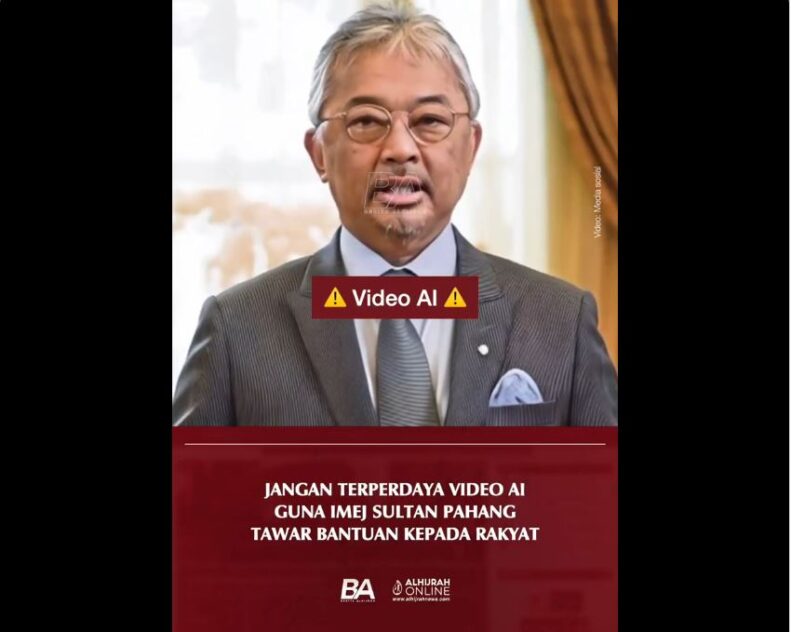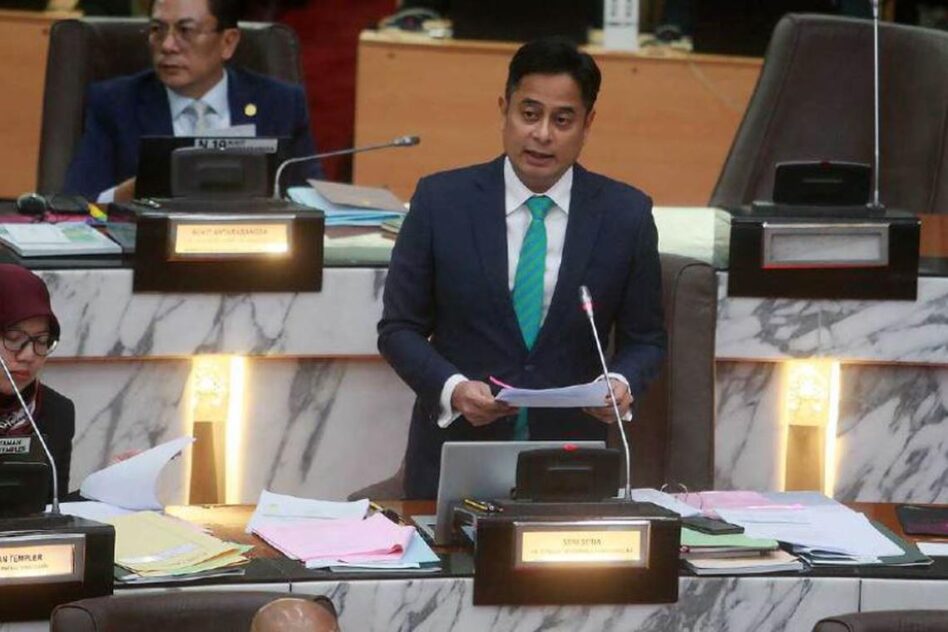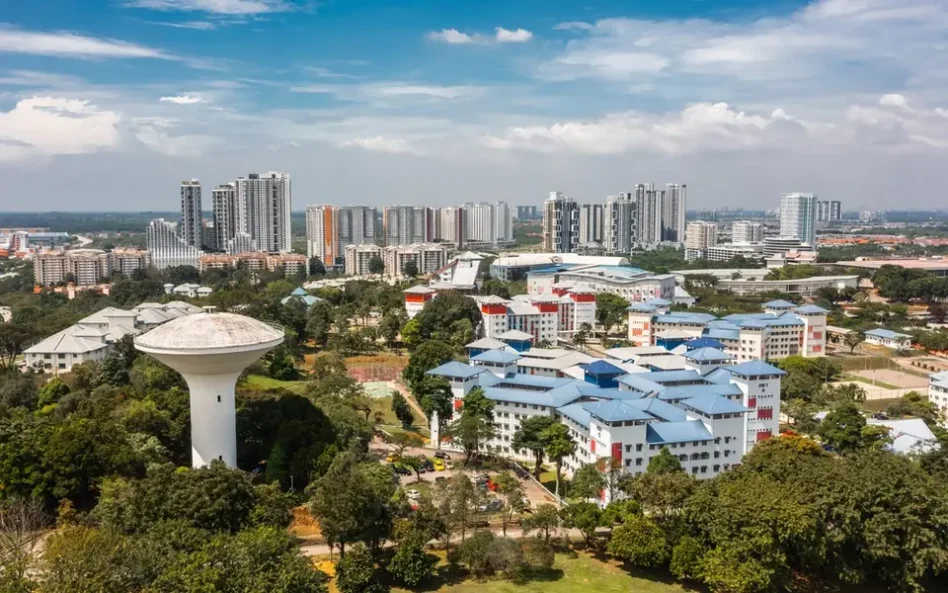WHEN Education Minister Fadhlina Sidek recently declared that Malaysians need to accept new Malay words because the Malay language is a “living language,” one cannot help but wonder if this statement was made with due consideration for linguistic reality.
While nobody denies that languages evolve, the approach to such evolution matters significantly, especially when the so-called “new” words already have widely accepted equivalents – or worse – when they border on absurdity.
A living language thrives on organic growth. It adapts to societal needs, borrowing words or coining new ones when there is a genuine linguistic gap.
However, introducing words like katimbang to replace the perfectly functional daripada or peluncuran instead of pelancaran defies this principle.
Such changes do not stem from societal demand or linguistic necessity but from an imposed top-down decree. Linguists like Noam Chomsky argue that language is shaped by its users, not by arbitrary mandates.
In this case, the Minister’s claim that the public is “beginning to accept” these words feel like an exaggerated claim given that no evidence suggests any real grassroots acceptance.
If anything, these terms are being shoved down the throats of officials and the public alike, thus creating confusion and perhaps, resistance.
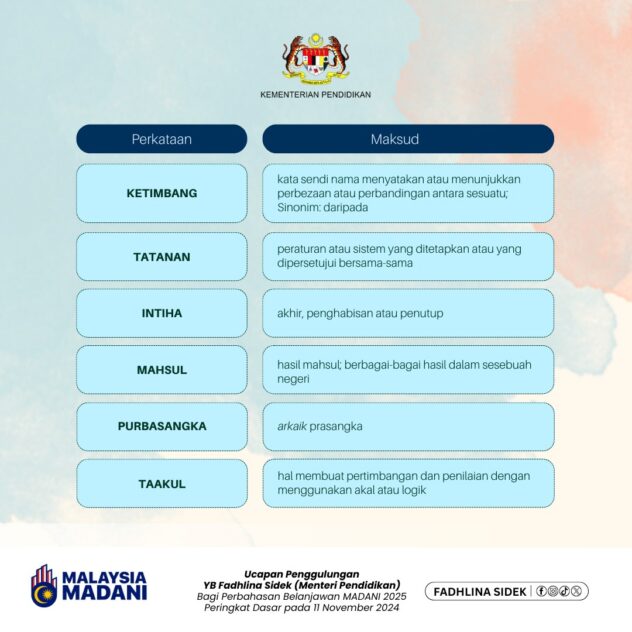
Ridiculing Bahasa Malaysia
Such words are not being ‘embraced’ because they fill a void; they are being forced into public discourse during official events and government documents. Officials, under pressure to adhere to the new terminology, scramble to use these words correctly, often resulting in embarrassing missteps and unnecessary confusion.
Take for instance the introduction of mahsul for “harvest” or intiha for “ending.” The Malay language already has perfectly functional and familiar words for these concepts such as hasil and penamat respectively.
Why complicate matters? Similarly, tatakelola (effective administration) and kebinekaan (diversity) are either redundant or already understood within their original context. Adding layers of unnecessary complexity undermines the very accessibility of the language, alienating the very people it seeks to serve.
Linguistic experts often emphasise that language evolution must be driven by usage and practicality. Professor Emeritus Datuk Dr Teo Kok Seong, a respected linguist, has previously pointed out that introducing unfamiliar terms risks alienating speakers and causing them to abandon the language altogether.
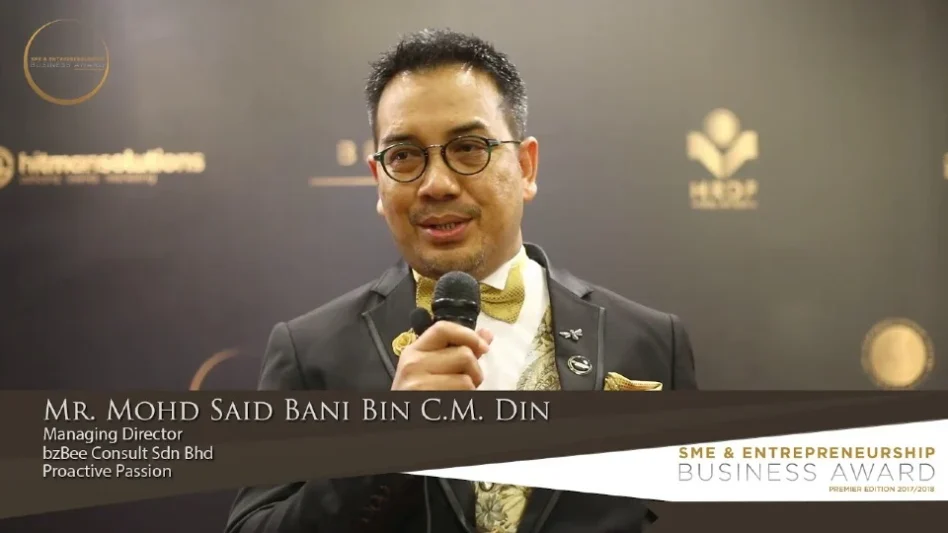
If Malaysians already struggle to maintain fluency in Bahasa Malaysia in an increasingly English-dominated global environment, why add to the confusion with terms that feel forced and out of place?
Instead of fostering pride in our national language, this approach risks making Bahasa Malaysia a subject of ridicule.
Imagine saying, “Walhasil, tiwikrama kebinekaan negara kita memerlukan tatakelola yang baik” during a speech. While the statement may be linguistically correct, it is also unnecessarily convoluted, obscuring the intended message. Language is meant to communicate – not to confuse.
While I may not be a language expert, I am a well-read person and an experienced communicator. In communication, the ultimate rule is to ensure people understand and embrace your message.
Confusing the public with unnecessary changes to language for the sake of novelty or to fulfil a “feel good” agenda serves nobody and risks eroding the very foundation of our linguistic heritage. – Nov 13, 2024
Sai Che Mat Din is a communications specialist and a passionate advocate for the National Language and heritage. He has extensive experience in delivering clear, impactful and meaningful messages to diverse audiences.
The views expressed are solely of the author and do not necessarily reflect those of Focus Malaysia.
Main image credit: Utusan Malaysia


